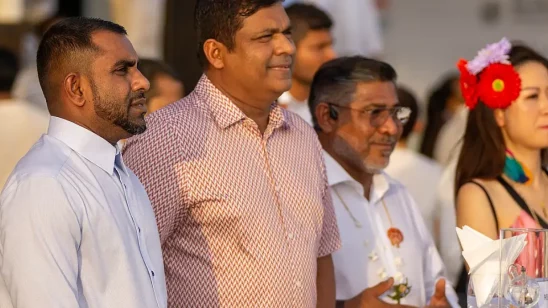
Air Service World Congress 2024: Maldives Unveils Major Aviation Developments
The Air Service World Congress 2024, held at the Kurumba Maldives, featured a dynamic panel discussion focusing on the intersection of air service development, tourism incentives, and sustainability. Moderated by Laila Humairah, Senior Producer and Presenter at Euronews, the panel brought together industry experts to share their insights and visions for the future, with a particular emphasis on the Maldives.
The panelists included Ibrahim Shareef, the CEO and Managing Director of the Maldives Airports Company Limited (MACL); Omar Hashmi, Managing Director of Volavion; Tatamo Rakotozafy, Head of Aviation Activities at Ravinala Airports; and Buthaina Traif, Director of Network Planning & Partnerships at Gulf Air.
Ibrahim Shareef opened the discussion by highlighting the nation’s unparalleled appeal as a tourist destination. With its crystal-clear waters and pristine white sandy beaches, the Maldives has consistently ranked as a top destination globally. Shareef emphasized the importance of diversifying the tourism market, targeting established markets such as Germany, Ukraine, and Italy, while also exploring emerging markets like Central Asia, Eastern Europe, India, and China. He pointed out the significant opportunity to improve connectivity to long-haul markets such as the USA, Australia, and Brazil, which currently lack direct flights to the Maldives.
Connectivity, Shareef argued, is a critical driver for market growth. Despite the USA being one of the top ten sources of visitors to the Maldives, the absence of direct connectivity limits its potential. Shareef’s vision includes enhancing air service connectivity to make the Maldives more accessible to both established and emerging markets, thereby driving further growth in tourism.
Shareef further underscored the Maldives’ commitment to sustainability, recognizing the nation’s vulnerability to climate change as a low-lying island country. He elaborated on the significant expansion projects at Velana International Airport, which include a new runway, cargo facilities, a fuel farm, and passenger terminals. These developments are set to elevate service levels, accommodate more tourists, and provide enhanced connectivity for new airlines. The Maldives is also exploring innovative technologies, such as renewable energy-powered seaplanes, to ensure sustainable growth in tourism.
In a significant announcement during the panel, Shareef revealed that the Maldives Airports Company Limited (MACL) plans to introduce a lighted water runway, paving the way for nighttime seaplane operations. Currently, seaplane operations in the Maldives are limited to daylight hours. The introduction of nighttime flights is expected to significantly benefit the Maldivian tourism industry by offering increased flexibility and convenience for travelers. “This development marks a major step forward in enhancing our aviation infrastructure and boosting the overall tourism experience in the Maldives,” Shareef stated. The implementation of a lighted water runway is anticipated to create new opportunities for both tourists and operators, reinforcing the Maldives’ status as a leading global travel destination.
Collaboration emerged as a recurring theme throughout the discussion. Shareef emphasized the importance of partnerships between airlines, airport operators, and the tourism industry. By working together, these stakeholders can develop meaningful routes that benefit all parties involved. Shareef highlighted ongoing efforts to coordinate with tourism promotion bodies and industry stakeholders to achieve common goals and foster growth.
The Maldives boasts the world’s largest seaplane operation, with plans to further increase movements during peak seasons. Future developments include the potential introduction of new seaplane technologies that could be powered by renewable energy, aligning with the Maldives’ commitment to sustainability.
As the panel discussion concluded, Shareef expressed optimism about the future of tourism in the Maldives. He called for continued collaboration and innovation to ensure that the Maldives remains a top destination while maintaining its commitment to sustainability and resilience in the face of climate change.






